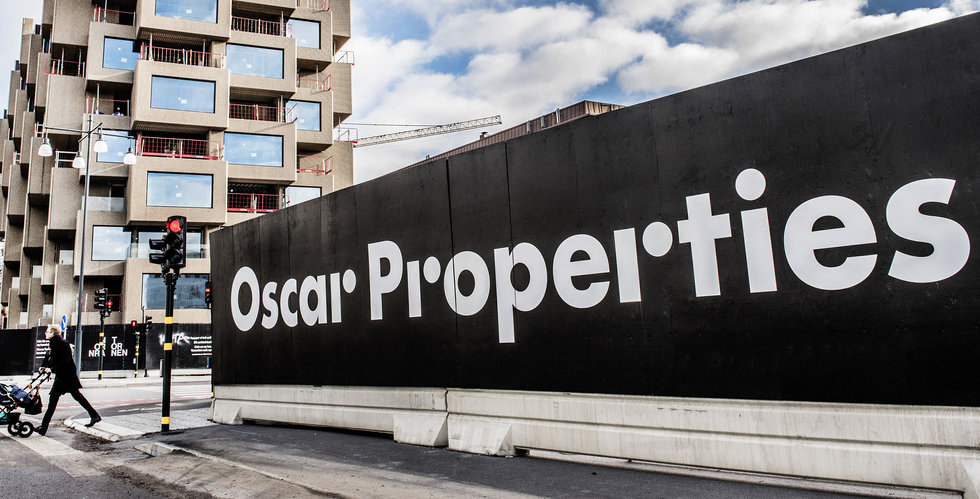Analyst Note | Dec 13, 2020
AstraZeneca’s $39 billion acquisition of Alexion should diversify cash flows but doesn’t have an impact on our AstraZeneca fair value estimate or moat rating. While the $175 per share acquisition prices represents close to a 13% premium to our stand-alone fair value estimate for Alexion, the likely $500 million in annual synergies gained in the deal support the higher payment. Further, we are increasing Alexion’s fair value estimate to $175 as we expect the deal to complete. We don’t believe AstraZeneca needed to make this acquisition, but was likely being opportunistic to acquire a firm trading below its fair value. Also, the more diverse cashflow streams should help AstraZeneca consistently reinvest in research and development, supporting the firm’s wide moat.
While AstraZeneca gains a strong new rare disease platform through Alexion, the acquisition brings AstraZeneca increased patent exposure through rare disease drug Soliris (biosimilar competition expected in 2025). However, we expect a high conversion to the firm’s next-generation drug Ultomiris to mitigate the biosimilar pressure. Soliris represented close to 60% of Alexion’s total sales in 2019, but we expect close to a 70% conversion rate to Ultomiris (already seen with initial approved indications) to mitigate the eventual biosimilar competition. Ultomiris offers dosing every eight weeks versus Soliris’ every two weeks, and a likely subcutaneous version of Ultomiris could make a major difference for patients. Further, patents around Ultomiris last beyond 2030, setting a up a long-term driver of cashflows.
Outside of generic threats, we do see several concerning challengers to Alexion’s Soliris and Ultomiris. However, the competition is largely focused on particular indications of the drugs and not the whole lineup of approved indications. We expect the Alexion drugs to carry more than five key indications, diversifying the patient populations and likely reducing competitive pressures.

Business Strategy and Outlook | Apr 30, 2020
AstraZeneca has built its leading presence in the pharma and biotech industry on patent-protected drugs and a developing pipeline that add up to a wide moat. The replenishment of new drugs is finally offsetting the recent patent losses on gastrointestinal drug Nexium and cholesterol reducer Crestor that have weighed on the company's growth potential.
AstraZeneca's pipeline is emerging as one of the strongest in the drug group, and we think the company is developing several key products that hold blockbuster potential. In particular, the company's recently launched cancer drugs Tagrisso and Imfinzi are well-positioned based on leading efficacy in hard-to-treat cancers. These drugs should also carry strong pricing power, driving the potential to expand Astra's margins. Also, Astra is well-positioned in the respiratory and diabetes spaces, but these areas tend to have poor pricing power relative to cancer drugs.
In addition to internal development, AstraZeneca has aggressively pursued acquisitions, with mixed results. The recent ZS Pharma acquisition yielded an interesting hyperkalaemia drug, but delays in getting the drug to the market have been concerning. However, the partial stake in Acerta looks to be developing well with new blood cancer drug Calquence, and joint development with Daiichi Sankyo on cancer drug Enhertu looks promising.
As Astra's next generation of drugs launch, we expect operating margins to improve based on the strong pricing power of the new drugs and the operating leverage the firm should attain as the new drugs reach critical mass. Also, as the new drugs launch, Astra is reducing the asset divestiture strategy it employed to help bridge the massive patent losses facing the firm over the past few years until the newer drugs were ready. While the asset sales helped prop up earnings and support the dividend during a challenging time, the strategy is not sustainable. As new drugs gain traction, Astra will likely continue to reduce the asset sales, which is strategically sound but will likely create a headwind to earnings growth.
Economic Moat | Apr 30, 2020
Patents, economies of scale, and a powerful distribution network support AstraZeneca’s wide moat. Despite a relatively late emergence from the industry patent cliff that largely started in 2012, Astra's strong lineup of next-generation drugs should significantly offset sales lost to new generic competition. Further, we project the majority of new drug sales will be supported in therapeutic areas with strong pricing power with a heavy focus on differentiated oncology drugs Tagrisso and Imfinzi, Lynparza and Calquence. Also, the majority of the firm's pipeline focuses on differentiated drugs in critical-care markets, with the exception of the company's small-molecule respiratory pipeline, which looks less differentiated and likely to face pricing pressures in an area where payers have viewed slightly improved follow-on drugs as largely interchangeable with older medicines. A risk to Astra's wide moat is the high level of externalized revenue and other income, which is partly based on divesting assets, that is unsustainable over the long term. While we expect Astra will decelerate these asset sales as newly launched drugs offset patent pressures, a prolonged period of low returns could ensue if these avenues of divestments dry up quicker than anticipated.
Astra's patent-protected drugs carry strong pricing power, which enables the firm to generate returns on invested capital in excess of its cost of capital. Further, the patents give the company time to develop the next generation of drugs before generic competition arises. Additionally, Astra holds a diversified product portfolio where there is less dependence on one particular drug. However, we expect Tagrisso will increasingly become a dominant drug within the portfolio. Also, Astra’s operating structure allows for cost-cutting following patent losses to reduce the margin pressure from lost high-margin drug sales. Overall, Astra's established product line creates the enormous cash flows needed to fund the average $800 million in development costs per new drug. In addition, the company's powerful distribution network sets up the company as a strong partner for smaller drug companies that lack Astra's resources.
Fair Value and Profit Drivers | Dec 13, 2020
We are slightly lowering our fair value estimate to GBX 8,360 due changes in exchange rates since our last update. AstraZeneca’s $39 billion acquisition of Alexion should diversify cash flows but doesn’t have an impact on our AstraZeneca fair value estimate. While the $175 per share acquisition prices represents close to a 13% premium to our stand-alone fair value estimate for Alexion, the likely $500 million in annual synergies gained in the deal support the higher payment. Further, the addition of Alexion’s rare disease platform gives Astra more diversified revenue streams with strong pricing power. We don’t believe AstraZeneca needed to make this acquisition, but was likely being opportunistic to acquire a firm trading below its fair value. Also, the more diverse cashflow streams should help AstraZeneca consistently reinvest in research and development, supporting the firm’s wide moat.
Overall, the company looks well positioned for growth with the recently launched cancer drugs carrying strong pricing power that should have an amplified impact on the bottom line. We expect the first-line lung cancer indication for Tagrisso combined with the likely approval in adjuvant lung cancer will drive peak sales above $10 billion annually. Also, cancer drug Imfinzi should gain share in Stage III lung cancer where treatment options are limited and the drug holds growing potential in other cancers. Additionally, BRCA-focused cancer drug Lynparza is well positioned to gain further market share in new indications. In looking at the entire company, we project 10% annual sales growth over the next five years as new products should offset patent losses. Further, we expect profit margins will expand as high margin specialty drugs continue to represent a larger proportion of overall sales over the next five years. We estimate a cost of capital of 7%, which is consistent with those of pharmaceutical peers.
Risk and Uncertainty | Apr 30, 2020
We view AstraZeneca's uncertainty as medium as the company faces the typical risks inherent in the pharmaceutical industry, including patent expirations, regulatory delays, and nonapprovals, as well as increasingly aggressive generic and managed-care industries. Also, while the company's pipeline has improved, if the company's top recently launched drugs (including Imfinzi, a PD-L1 drug for cancer and Tagrisso for lung cancer) fail to take market share, the firm's cash flows would be significantly impacted. Also, as the firm has become more focused on cancer, any major changes to the pricing around the cancer class of drugs could significantly impact the firm.
Stewardship | Dec 13, 2020
Following an abrupt retirement announcement by CEO David Brennan when the company reported disappointing first-quarter 2012 results, Pascal Soriot was appointed as CEO in mid-2012. We believe the poor 2012 results, combined with an uneven record, led to Brennan's retirement and the need to bring in management from outside the company. Soriot brings strong credentials from Roche, where he was the chief operating officer of the pharmaceutical division. Under Soriot, we have been impressed by the speed of pipeline development and strong commercial execution with key products. Also, CFO Marc Dunoyer replaced Simon Lowth in late 2013 as Lowth left Astra to return to his energy background by joining the BG Group as CFO. Dunoyer brings strong industry experience from GlaxoSmithKline. As far as stewardship, we rate the firm as Standard, as operating effectiveness has been strong under the current management team, but the capital-allocation track record seems mixed. We like the cancer focus in the pipeline, but the continued investment in respiratory drugs (both internally and through acquisitions) seems to be yielding less differentiated products with weak pricing power. Further, we are concerned that Astra is selling off noncore assets to fund other revenue, which is not a long-term sustainable strategy. Also, the 2019 purchase of partial rights to Enhertu looks like a favorable use of capital based on encouraging data that should expand the drug's potential in breast cancer. Lastly, the recently announced acquisition of Alexion brings a solid platform of rare disease drugs that can further diversify Astra's cashflows, but we view the deal's price as close to the fair value.






















